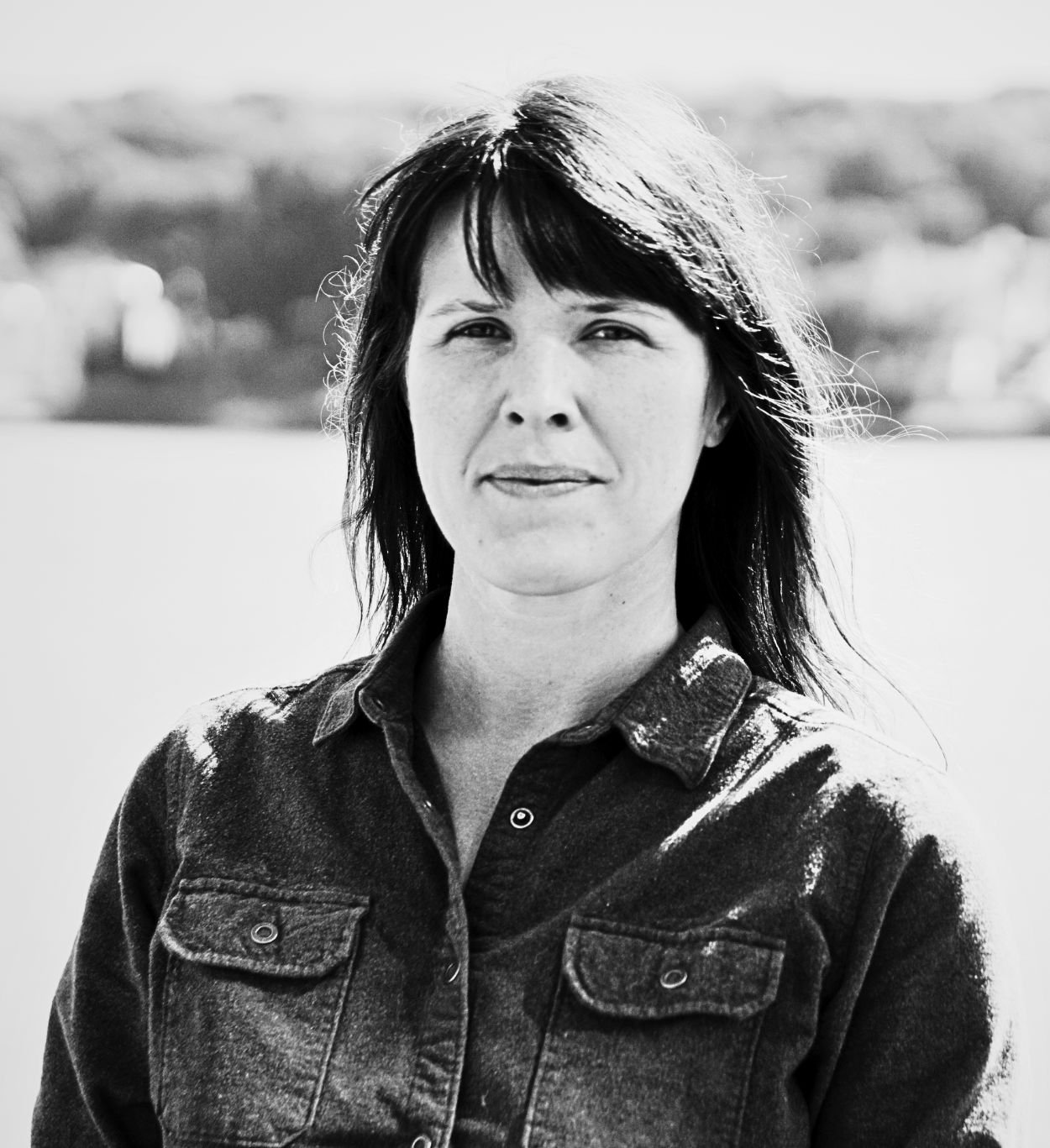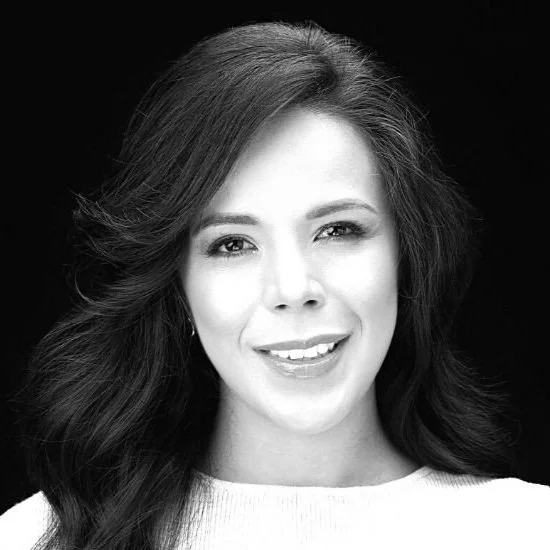Kendall Barbery On Supporting Farmers To Preserve And Regenerate Ocean Ecosystems
Kendall is Director of Partnerships and Program Development for GreenWave, where she focuses on catalysing sustainable growth across the regenerative ocean farming sector.
Kendall does this by working with partners in regions where kelp farming is in its infancy, helping to assess needs and develop the infrastructure and support networks necessary for success. Since joining GreenWave in 2017, Kendall has supported all aspects of GreenWave's farm and nursery operations, developed strategy for core programming, and supported partners in North America and beyond.
Before joining GreenWave, Kendall spent time as a marine technician in Antarctica and as a deckhand on commercial fishing boats in the salmon-rich waters of Bristol Bay, Alaska. On land, Kendall has deconstructed buildings, designed and built green infrastructure, and led watershed planning initiatives. Kendall holds a master's degree in environmental science from Yale School of the Environment.
Kendall discusses nurturing the blue-green economy, the regenerative ocean farming industry and what’s in store for the future of aquatic ecosystem health and sustainability.
Highlights from the interview (listen to the podcast for full details)
[Sarah Ripper] - To start off, can you please share a bit about your background and what led you to the regenerative ocean farming?
[Kendall Barbery] - It was a long and circuitous path, but the connection was always the water. I grew up on the water in the mid-Atlantic region of the United States, an area people refer to as the Tidewater. It's a lowland marsh on the coast of the Chesapeake Bay estuary, and when I looked out my window when I was young, I just saw flat land and murky water. It was something I looked at, but not a place I interacted with. I had no real appreciation for the richness and beauty of the ecosystem or any inkling or understanding of the people who made their living on the water; the watermen and women who were the oyster harvesters, fishers, or crabbers. It wasn't until I moved to Alaska in my early 20s to start working on the water when I was humbled by it, and I started to understand and appreciate where I grew up. I showed up as a total novice and scraped together whatever job I could as a seasonal worker with absolutely no experience at first. I worked on water taxis, sport fishing boats, tour boats, a tugboat and eventually I landed on this commercial fishing boat in Bristol Bay, what's touted as the largest sustainably managed sockeye fishery in the world. I am so sorry to put this pun here, but it was commercial fishing that got me hooked on the water, and I realised I had a thirst for this work and the connection to place I get through being out there on the water, exposed to the elements and doing this hard physical work. I started seeing every place I live through my relationship to the water since then. I eventually moved to Connecticut a little bit more than a decade ago, and it was for graduate school at the time. I thought I would be here for a couple of years and then move back to Alaska. I started to see this place (Long Island Sound) in the same way that I had neglected the Chesapeake Bay in my youth. I found this guy out on an oyster farm in the middle of Long Island Sound with a new idea for how to work on the water, a new way to look at what we're growing in the ocean and maintaining a life and livelihood doing this work. I was so drawn to that work that this is where I stayed.
Can you tell us more about GreenWave, the work you're doing, and the impact it's generating?
GreenWave is a non-profit organisation based in New Haven, Connecticut, but we work across the coasts of North America and are starting to work with partners internationally.
our core mission is to train and support regenerative ocean farmers, people who are growing seaweed, shellfish, and other things that are good for the ocean; things that don't require feed, freshwater or fertiliser.
Our mission is to train and support regenerative ocean farmers, and we do this through four program areas, training and support, market development, farmer infrastructure, and climate subsidies. Our programming started from humble beginnings, on a small ocean farm in central Connecticut, where Bren Smith started growing oysters and kelp alongside one another back in 2011-2012. It's grown from a small farm to a global movement that's reached thousands of people, not just across coasts in the U.S., but in other areas around the world. To date, we have an online hub with over 6,000 members from 60 countries. We have an app that supports data collection, and over 50 farmers in North America are using this app to collect growth data from their farm and understand the environmental impacts and benefits of those crops, such as carbon uptake, nitrogen uptake and reef restoration value. We also have an app that supports value chain coordination and connects seed producers to farmers and farmers to buyers and processors. We have about 70 companies currently on this app, and we're seeing more adoption as the network is growing and people are mobilising around this new way of working on the ocean.
What examples have you seen of people taking these new knowledge or ways of thinking about the ocean and turning them into innovative possibilities?
One of the things that's incredible is people are coming to this movement for regenerative ocean farming from all different places and angles. We're working with fishermen in Alaska who have started cultivating kelp in their off season, so they're able to maintain a year-round livelihood working on the water, when otherwise they might have a very long period when there was no work close to home or their families.
We're working with shell fishermen and women on both coasts of the U.S. who are diversifying their operations by incorporating seaweed and recognising the benefits of growing kelp alongside oysters and mussels. These crops support and improve the productivity of each other.
What key innovations and possibilities are presented by the blue-green economy?
It might be useful to talk about what we mean when we're talking about regenerative ocean farming. When we're growing regenerative crops on land, people are thinking about the health of the soil. When we're growing regenerative crops in the ocean, we're thinking about the health of the water and things that are doing more good than harm through not requiring fertiliser, feed, or fresh water. When these things are grown together, they are supporting the growth of each other. When kelp is grown next to mussels, it’s taking carbon from the water and improving the environment for the shells to form. Growing oysters, mussels and kelp in the ocean is not necessarily new technology, but it's about the way we're growing them and the way that we're thinking about growing regenerative and restorative species like kelp and shellfish together which is innovative. Those ideas are the ones that are pushing us forward.
To catalyse this movement around regenerative ocean farming, we've also had to work with other types of technology. We're exploring things like virtual reality to help farmers or people who have had no relationship with the ocean to understand what's happening below the surface.
We are starting to develop different interactive and immersive educational technologies to give people a virtual ‘hands on’ experience, to inspire and attract more people to this movement.
What inspiring projects or initiatives have you come across creating a positive change?
In addition to being inspired by all of the farmers who we're working with across the coasts of North America and elsewhere in the world, I am excited and energised by a new organisation which is just two years old from Argentina called Por el Mar. Por el Mar is a conservation oriented organisation working to protect and restore the oceans of Argentina, and GreenWave recently established a partnership with them to explore the possibilities for regenerative ocean farming. I am inspired by their energy, dedication, and looking forward to where that partnership might take us.
To finish off, what books or resources would you recommend to our listeners?
A couple of years ago, a marine biologist named Dr. Ayana Johnson—who happens to be on the board of GreenWave—published an anthology of essays called All We Can Save. In a few months, she's releasing her second anthology of essays called What If We Get It Right?
One of the reasons I love the work I do is we're thinking and rethinking about how to produce food. We're looking toward not away from the ocean as a solution and not just imagining possibilities, we're activating them. I'm looking forward to seeing what other people envision for the future and what solutions are already on the table.
Initiatives, Resources and people mentioned on the podcast
Recommended books
All We Can Save: Truth, Courage, and Solutions for the Climate Crisis by Dr. Ayana Elizabeth Johnson & Dr. Katharine K. Wilkinson
What If We Get It Right?: Visions of Climate Futures by Dr. Ayana Elizabeth Johnson








